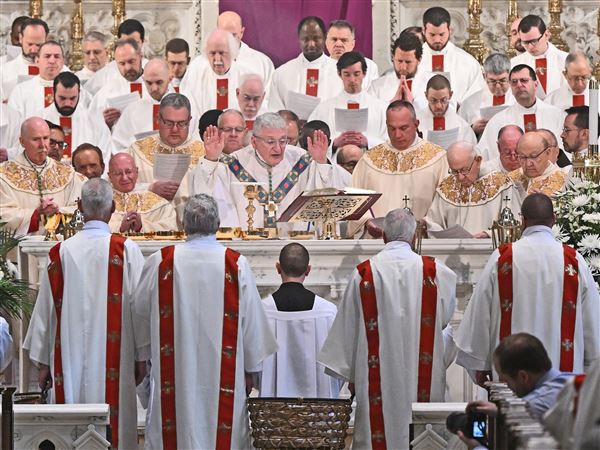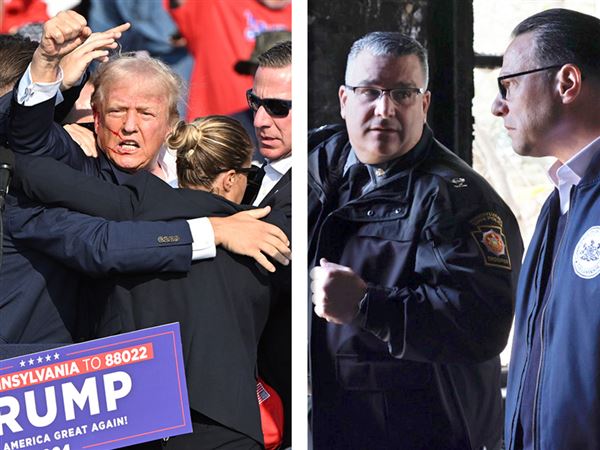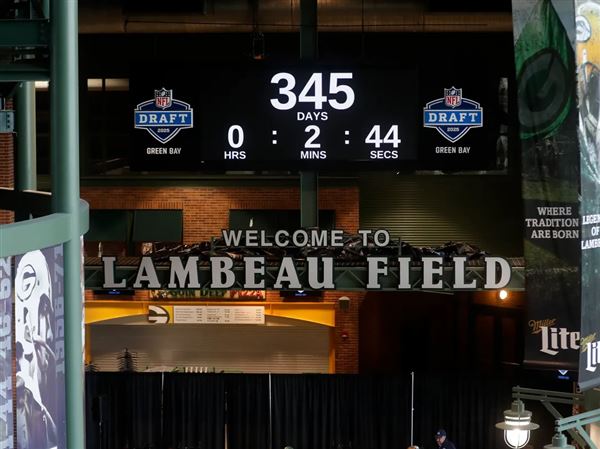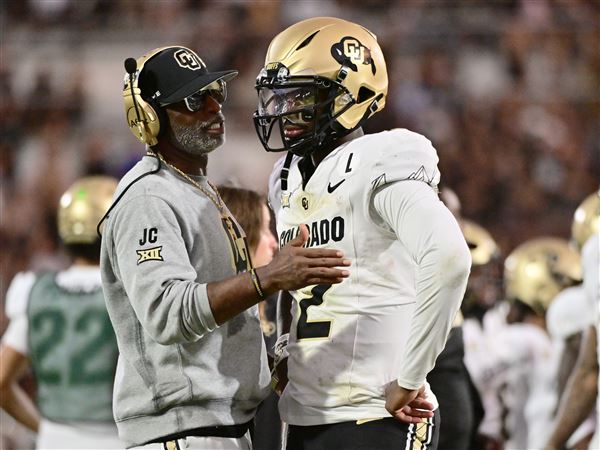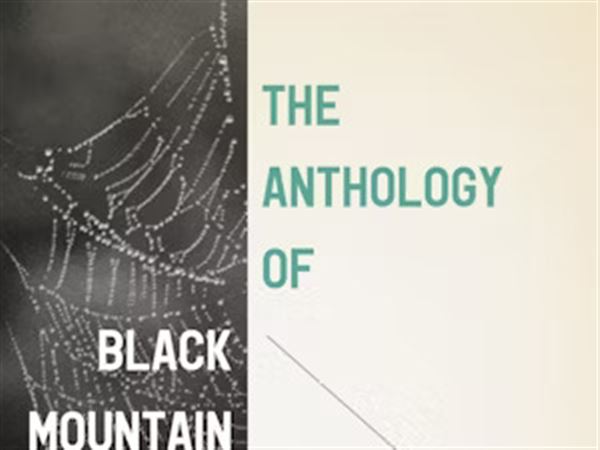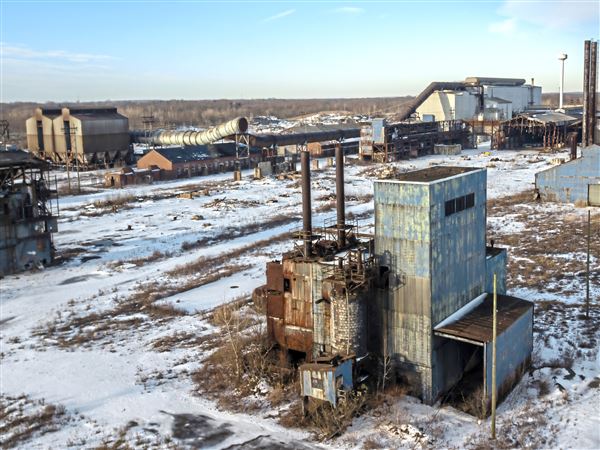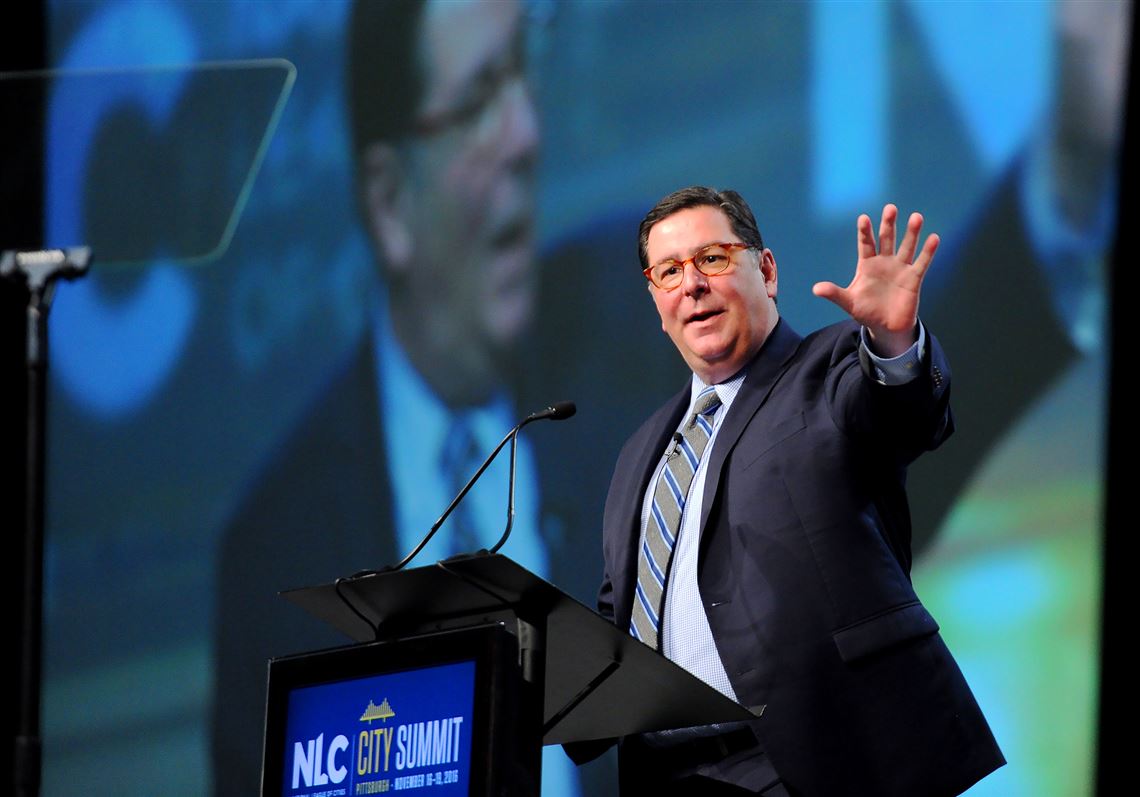Some 3,000 Americans came together in Pittsburgh last week to talk about our divides.
That was not the only item on the agenda but the four-day conference of the National League of Cities did follow on heels of perhaps the most divisive presidential election since 1860. So it was the elephant (and not the expected donkey) in the room as the conference opened.
Thursday afternoon’s welcoming ceremony at the David L. Lawrence Convention Center began with a patriotic medley that included the singing of “God Bless America” by uniformed Pittsburgh Police Officer Ronald Hough. Mayor Bill Peduto then tapped the usual touchstones of steel, family, sports and rebirth in his opening address, holding off on discussing the election until he called upon his “inner Mr. Rogers’’ and donned a sweater.
“If we work together we can do anything,” he said. “The 21st century is the century of cities.”
That may be, but Mr. Peduto might have added that this year the small places kicked big cities’ collective butt.
I love my country and the latest only-in-America story I can’t wait to tell the grandkids is that the guy who kept saying the election was rigged won our presidency with fewer votes than the loser. With results still being counted Friday, it appeared Hillary Clinton had a million or more votes than Donald Trump. For that she gets some lovely parting gifts and thanks for playing our game.
It will work this way for the second time in 16 years because our Electoral College makes it as important to carry places as people. Just as the U.S. Senate gives outsized clout to small states — California with 38.3 million people gets two votes as does Wyoming with 583,000 — the Electoral College makes votes in some states more crucial than in others.
Republicans in California and Democrats in Wyoming who cast their presidential votes had no hope of backing the winner, which is true in every dependable landslide state. It’s not true in Pennsylvania, where voters had important work to do.
Allegheny County voters went for Mrs. Clinton by a 105,529-vote margin and Philadelphia had her by more than 557,000 votes. That helped her to a — wait for it — 57,570-vote loss to Mr. Trump, who will get all 20 electoral votes.
You’ve undoubtedly seen the map of Pennsylvania counties that shows the blue Democratic islands in a sea of Republican red, a map that echoes the U.S. map in that way. Mr. Trump’s Michigan and Wisconsin victories were even closer than in Pennsylvania, with much the same urban/rural split. Had those three states gone Ms.Clinton’s way, she’d have won.
It’s time to rethink an old Democratic dismissal of the hinterlands’ importance, “trees don’t vote,” because this time there was real bite behind all that bark. It’s not time to rethink the Electoral College, though some are tilting at that windmill.
On Tuesday, Sen. Barbara Boxer, D-Calif., introduced a bill to abolish the system via constitutional amendment, legislation that will be dead on arrival because the red states are in charge. Democratic energies would be better spent trying figure out why their economic message — when they bothered to make one — gained no traction outside of big cities.
“These two candidates were talking to two different countries. They really were,” Candy Crowley, former chief political correspondent for CNN, said Thursday at the City Summit.
There are racial and class divisions within cities, too, a fact on the mind of more than one conference speaker. But the cultural divide between city and country has become a chasm. As Richard Shearer of the Brookings Institution wrote in an election post-mortem, cities have boomed in the past eight years while rural areas have fewer jobs. Meantime, small metro areas are by and large stuck in neutral. The anger is palpable.
The subtext of calls for Electoral College reform is a way for Democrats to not need “those people” anymore. That’s not just bad political strategy; it’s bad governance. A lot of those people were not long ago the party’s core constituency. Writing them off seems like a scene from “The Hunger Games,” with coddled urban elites turning their backs to the small towns and countryside.
OK, sure, that’s overly dramatic. Plenty of Pittsburghers have hardships greater than the people in the 56 Pennsylvania counties that Mr. Trump won. But I just watched him win with the false hope of bringing back coal and steel jobs in a big way. That crock sold because Democrats spent so much time rallying their base in the cities that Mr. Trump had an audience pretty much to himself.
The city of Pittsburgh has been trotting out a new slogan, “If it’s not for all, it’s not for us.” Democrats ought to take that show on the road.
Brian O’Neill: boneill@post-gazette.com or 412-263-1947 or on Twitter @brotheroneill
First Published: November 20, 2016, 5:00 a.m.
